Russia's upper house votes to allow Putin to deploy armed forces abroad
Russia's upper house of parliament has unanimously voted to approve a request by President Vladimir Putin to deploy armed forces outside the country in support of ethnic Russians in two breakaway regions of eastern Ukraine, which Moscow has already recognized as independent republics.
The decision was backed by a total of 153 Russian senators on Tuesday, with no one voting against or abstaining.
The lawmakers said the decision would take immediate effect as they discussed the motion, adding that the forces would be deployed as a peacekeeping mission in the breakaway Lugansk and Donetsk regions in eastern Ukraine.
In a statement earlier in the day, Putin had called on Russia's upper house to approve using the country's’ armed forces abroad on the ground of generally accepted principles and norms of international law.
Donetsk and Lugansk, collectively known as the Donbass, were turned into self-proclaimed republics by its ethnic Russian residents in 2014, which triggered a violent conflict between government forces and the secessionists.
The conflict worsened following a wave of protests in Ukraine that led to the overthrow of a democratically-elected pro-Russia government, which was replaced it with a pro-West administration.
Ukraine, as well as the European Union and the United States, claim Russia has a hand in the conflict in the Donbass, which has killed more than 14,000 people so far. Moscow denies the allegation.
Speaking after the Russian parliament's move to grant him permission to use the army outside the country, Putin said the Western-brokered peace agreements seeking to end the conflict in eastern Ukraine no longer existed.
"The Minsk agreements do not exist now, we recognized the DNR and LNR," Putin said, using the abbreviations for the separatist regions in Donetsk and Lugansk.
FM: Russia will defend Donetsk, Lugansk
Also on Tuesday, Russian Foreign Minsiter Sergei Lavrov said Moscow would act as a guarantor of the security and integrity of the two breakaway republics in Donetsk and Lugansk.
Lavrov stressed that the two regions would be independent based on the status enshrined in pacts inked a day earlier by Putin and the leaders of the two republics, Denis Pushilin and Leonid Pasechnik.
"Treaties of friendship, cooperation, and mutual assistance have been signed between Russia and these new states, in which we promise to safeguard their security," the top Russian diplomat said.
The two leaders called for Putin to grant recognition as the pro-Russia forces in the breakaway regions and the Ukrainian troops accused each other of heavy shelling.
Kremlin: Severance of ties with Ukraine extremely unwelcome
Kremlin spokesman Dmitry Peskov said on Tuesday that Ukraine's severance of diplomatic ties with Russia was extremely unwelcome as it would only further complicate relations between the two countries.
"Naturally, the severance of diplomatic relations would be an extremely unwelcome scenario, which will only make everything still more difficult, not only for the states but also for their peoples," Peskov said.
The Kremlin official made the comment after Ukrainian President Vladimir Zelensky earlier said he had received a request from the country's Foreign Ministry to approve cutting diplomatic ties with Russia.
Ukraine urges west to supply arms to face Russia: Ukrainian minister
In another development on Tuesday, Ukraine's Foreign Minister Dmytro Kuleba called on Western countries to step up weapons shipments to his country to help Kiev counter Russia after the recognition.
"This morning I sent a letter to the British Foreign Secretary asking for additional defensive weapons for Ukraine. With the same question, today I will turn to my interlocutors in the US," Kuleba said.
"Our best guarantees will be our diplomacy and arms. We will mobilize the whole world to get everything we need to strengthen our defenses," he added.
Washington has over the past month kept accusing Moscow of planning to attack Ukraine by stationing as many as 190,000 troops on and around Ukraine's borders. Russia has rejected the allegations, saying the military build-up is defensive in nature.
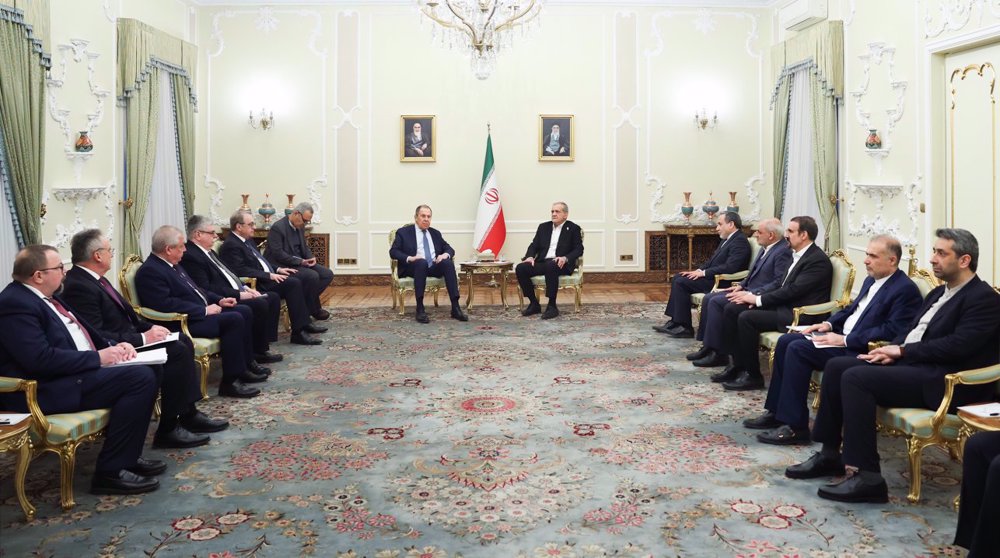
Iran’s president vows to accelerate cooperation with Russia
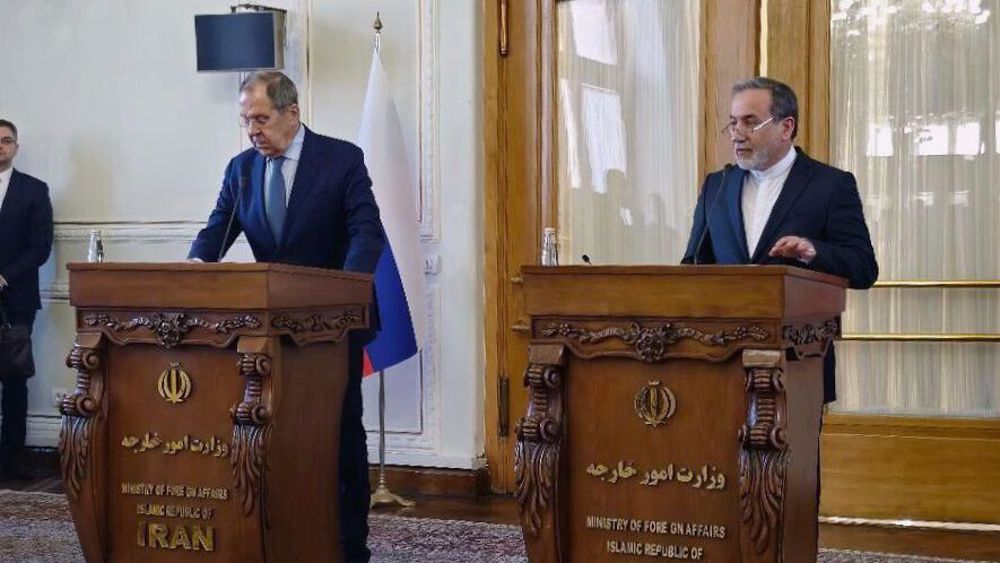
Iran rules out nuclear talks with US amid ‘maximum pressure’ campaign
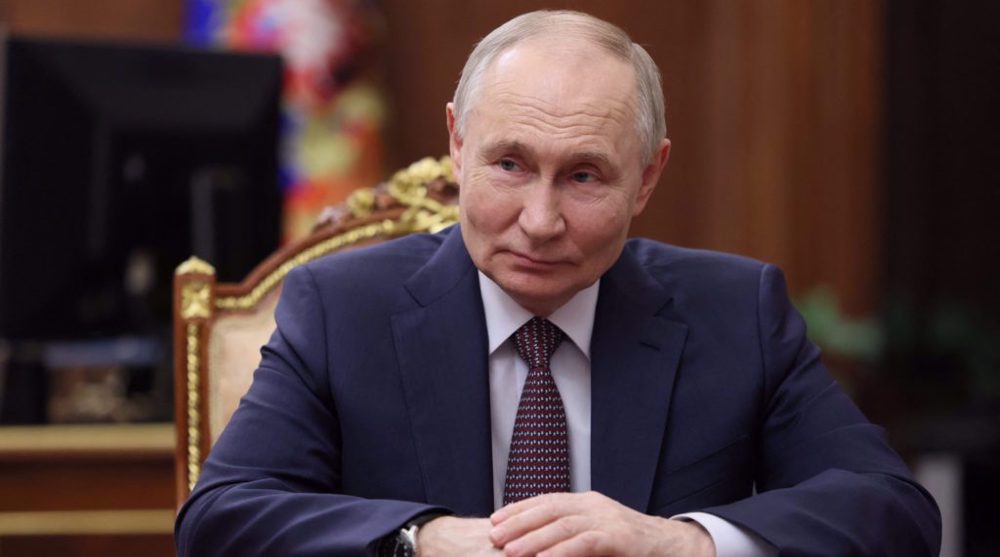
Putin says not opposed to Europeans’ involvement in Ukraine talks
Israel’s massacres won’t grant it ‘legitimacy’: Hamas on 31st anniversary of Ibrahimi Mosque tragedy
French leader decries ‘unprecedented diplomatic scandal’ after Israel bars European MPs
VIDEO | Washington’s failed projects
VIDEO | Islamabad exhibition exposes Israeli atrocities in Gaza
Trump rescinds arms sales regulation in favor of Israel, sources say
Iran’s president vows to accelerate cooperation with Russia
Palestinian says Israeli jailers poured acid on him during interrogation
Iran, Turkmenistan seek increased cargo transit via railways


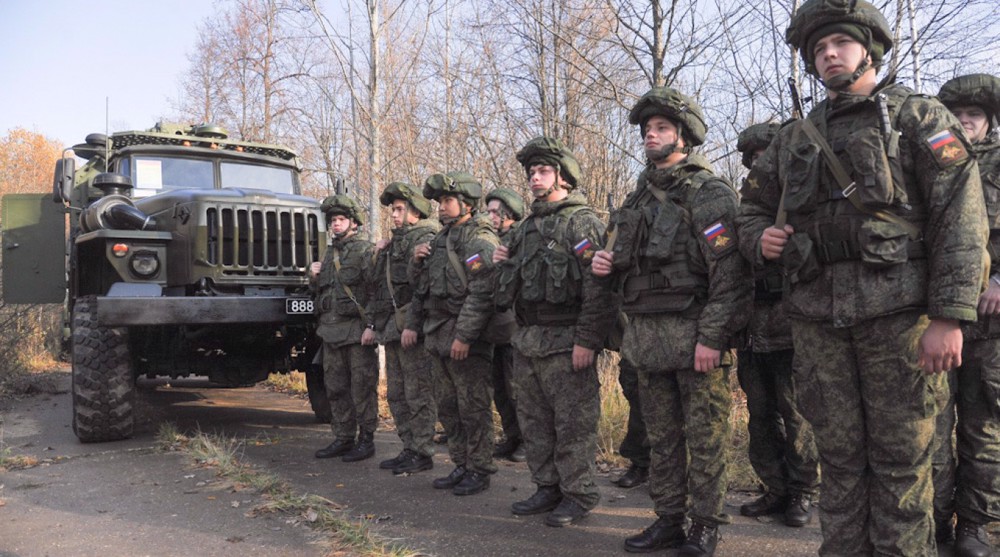
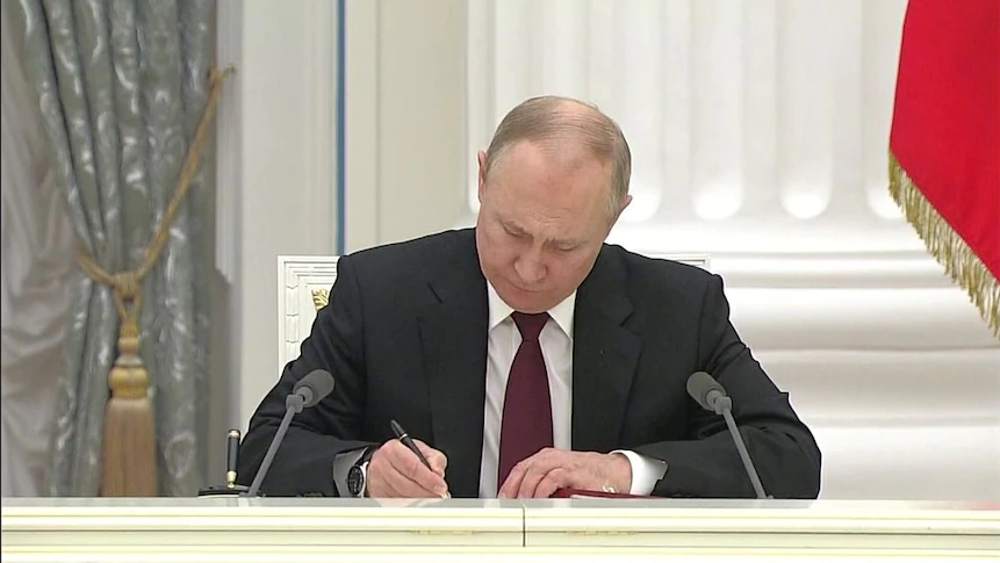
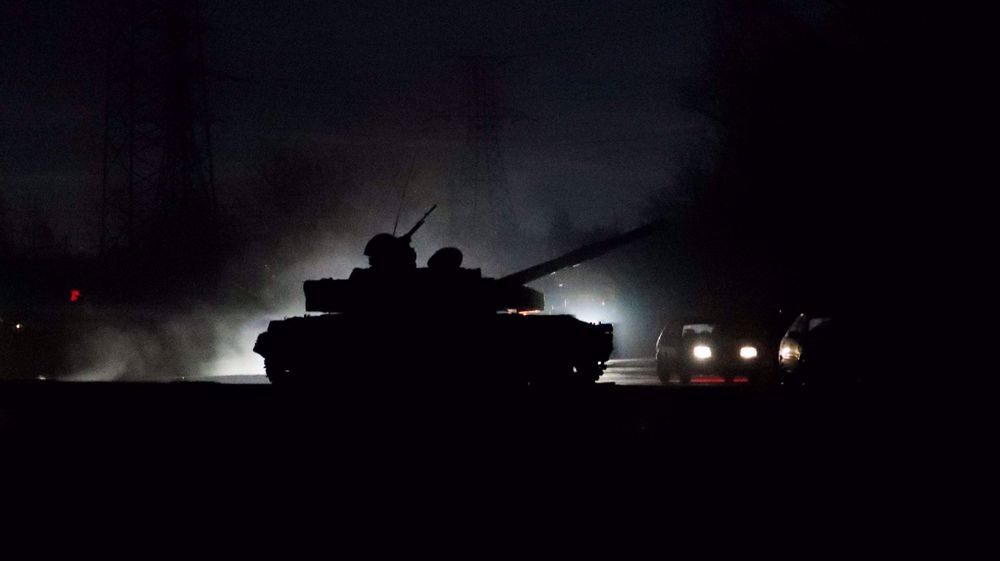




 This makes it easy to access the Press TV website
This makes it easy to access the Press TV website